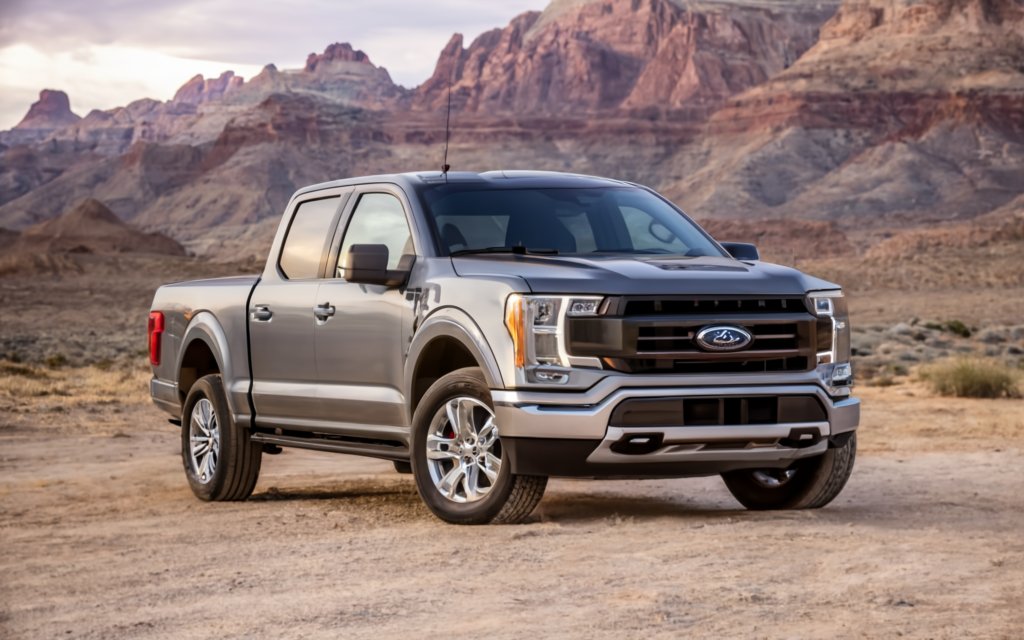Table of Contents
The Ford F150 is one of the most popular trucks on the road, known for its toughness, versatility, and dependability. Whether you’re hauling heavy loads, towing a trailer, or enjoying a smooth drive, many potential buyers ask how much does a Ford F150 weighs. This question determines the truck’s performance, fuel efficiency, and overall capabilities. How Much Does a Ford F150 Weigh? In this article, we’ll dive into the Ford F150’s weight details, explore its various models, and help you understand why it is such an essential factor.

Understanding the Importance of a Truck’s Weight
When buying a truck, understanding its weight is essential. Weight affects everything from fuel economy to towing capacity and handling. The weight of a Ford F150 also impacts the payload it can carry and the type of terrain it can handle. So, how much does a Ford F150 weigh, and what should you know about it before deciding?
What Does Curb Weight Mean?
Before we get into the exact weight of the Ford F150, let’s clarify a few helpful terms. Curb weight is the truck’s total weight without any passengers or cargo. It includes standard equipment and a full gas tank but excludes additional items or people. How Much Does a Ford F150 Weigh? This is the figure most people refer to when asking how much a Ford F150 weighs. Knowing the curb weight is essential because it provides a baseline for understanding how much extra load the truck can handle.
How Much Does a Ford F150 Weigh? Exploring the Models
How Much Does a Ford F150 Weigh? The Ford F150 comes in various configurations, and its weight can vary based on the model, engine size, bed length, and other features. Let’s break down the weight of the Ford F150 across its different models so you can get a better idea of what to expect.
The Base Model Ford F150
For those wondering how much does a Ford F150 weigh in its base model, the curb weight typically averages around 4,000 pounds. The exact weight can vary slightly depending on specific configurations, but this gives you a general idea. This lightweight build makes the F150 easier to handle and provides better fuel efficiency than heavier trucks.
Higher-End Models and Weight Variations
The weight increases as you move up to more premium models of the Ford F150. For instance, the F150 Lariat, which has more features and a more powerful engine, weighs closer to 4,500 to 5,000 pounds. The added weight is due to luxury features, a larger engine, and a more rugged build. The F150 remains competitive in fuel efficiency and performance even at higher weights.
Raptor and Heavier Models
The Ford F150 Raptor, a high-performance version designed for off-road adventures, weighs significantly more than the base model. It tips the scales at around 5,700 to 6,000 pounds. This increased weight gives it the stability and toughness needed to tackle rough terrain, making it ideal for outdoor enthusiasts who need a truck built for extreme conditions.
Also read: Palm Desert Math Science Tech Center 25: Discover Cutting-Edge Innovation & Excellence
Factors That Affect the Weight of a Ford F150
You might wonder why the weight of a Ford F150 varies so much between different models. Several key factors influence the weight of this iconic truck.
Engine Size and Type
One of the most significant factors affecting the weight of a Ford F150 is the engine size and type. Larger, more powerful engines naturally add to the truck’s overall weight. The 3.5L EcoBoost engine, for instance, weighs more than the standard 2.7L EcoBoost engine. Similarly, choosing a model with a V8 engine instead of a V6 will also increase the curb weight.
Bed Length and Cab Size
Another factor that impacts the Ford F150’s weight is the truck bed’s length and the cab’s size. A longer bed or larger crew cab adds extra pounds to the truck’s overall weight. If you need more cargo space or a larger cabin, you’ll opt for a heavier F150. For example, the SuperCrew Cab option will weigh more than the Regular Cab.
Additional Features and Accessories
The more features and accessories you add to your Ford F150, the heavier it becomes. Luxurious features like leather seats upgraded audio systems, and advanced safety technology can add a few hundred pounds to the truck’s overall weight. While these features make the car more comfortable and enjoyable, they also contribute to the total weight.
Why the Weight of a Ford F150 Matters
Now that we’ve answered how much does a Ford F150 weighs, you may wonder why it’s an essential factor. Understanding the weight of your truck is crucial for several reasons.
Towing and Payload Capacity
The weight of a Ford F150 directly affects its towing and payload capacity. Heavier trucks tend to have a higher towing capacity, making them better suited for hauling large trailers, boats, or other heavy loads. On the other hand, a lighter truck will generally have a lower towing capacity but can handle more payload in the bed. For example, the F150 can tow anywhere from 7,000 to 14,000 pounds, depending on the model and configuration.
Fuel Efficiency and Performance
Weight also plays a significant role in a truck’s fuel efficiency. Lighter models of the Ford F150 tend to get better gas mileage than their heavier counterparts. The lighter the car, the less energy it takes to move, which translates to better fuel economy. Choosing a lighter model may be the best option for drivers who prioritize saving on fuel costs.
Handling and Off-Road Capability
Suppose you’re planning to take your Ford F150 off-road; weight matters. A heavier truck like the Raptor provides more stability on rough terrains, making it ideal for off-roading. On the other hand, lighter trucks are easier to handle on city streets and highways. The truck’s weight can influence how well it performs in different driving conditions, so it’s essential to choose the suitable model based on your needs.
Ford F150 Weight and Safety

The weight of a truck can also affect its safety on the road. Heavier trucks tend to be more stable and can offer better protection in collisions. However, they can also be more challenging to maneuver in tight spaces. How Much Does a Ford F150 Weigh? Understanding the balance between weight and safety can help you decide when choosing the suitable F150 model.
Impact on Stopping Distance
One thing to remember is that heavier trucks generally have longer stopping distances. If your Ford F150 is fully loaded or weighs more due to additional features, it may take longer to come to a complete stop. This is an essential consideration for drivers who frequently travel with heavy loads.
So, how much does a Ford F150 weigh? The answer depends on the model, engine, cab size, and features you choose. On average, the Ford F150 weighs between 4,000 and 6,000 pounds, with variations depending on the configuration. How Much Does a Ford F150 Weigh? This impressive range of weights allows the F150 to balance performance, fuel efficiency, towing capacity, and off-road capability, making it one of the most versatile trucks on the market.
How Much Does a Ford F150 Weigh? The weight of the Ford F150 plays a significant role in determining its capabilities, from towing power to fuel efficiency. Whether you’re looking for a lightweight, fuel-efficient truck for daily use or a heavy-duty model for demanding jobs and off-roading adventures, the F150 has something for everyone. How Much Does a Ford F150 Weigh? Understanding how weight impacts performance will help you make the best decision when purchasing your next Ford F150.

